Bi-Co students shared stories and poems at the “Crossing Borders” event, which showcased stories and poems created in workshops as well as open-mic performances.
-
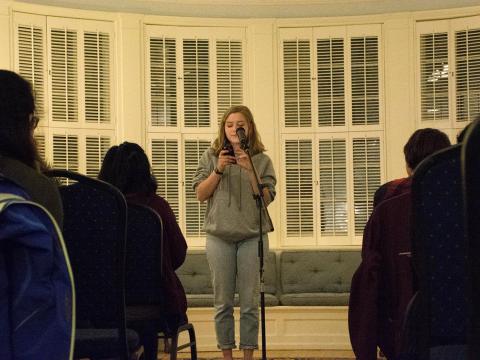
-
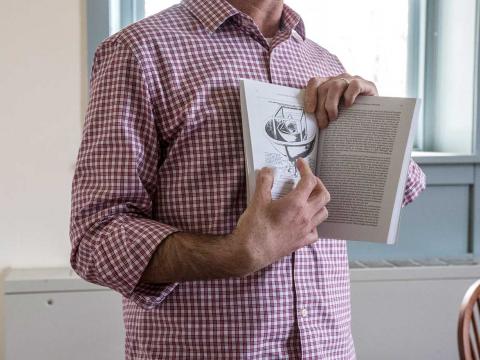
This course, which explores the revolution in the sciences that occurred between 1500 and 1750, seeks to understand how and why certain people began to investigate the natural world in new ways and how they convinced other people that their new ways were better.
-
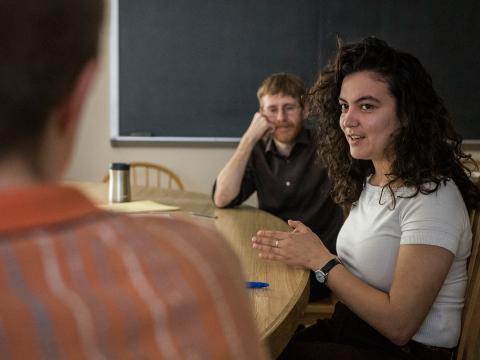
This intensive political science research seminar engages debates about capitalism and examines efforts to create alternatives.
-

This course explores the role of food in religious beliefs and practices, including the role of food in religious rituals, the connection between religious foodways and religious identities, and the ethics of food production and consumption.
-

The course, which covers the design, evaluation, and implementation of interactive computing systems, explores how design decisions can impact access to computing and technology.
-

The ninth installment of the film series focused on contemporary social justice concerns and included a live performance for the first time.
-

The Office of Academic Resources’ Reading Rainbow series, which asks campus community members to share book recommendations, continued this semester with an event focused on books that the panelists—including President Kim Benston and Talia Scott ’19—would have given to themselves as a young adult.
-

This visual studies course explores the specific mid-20th-century movement of “conceptual art,” as well as its progenitors and its progeny. Students study the founding manifestos, canonical works, and critical appraisals, as well as develop tightly structured studio practica to embody the former research.
-

This first-year writing seminar examines cities as sites of public health concern and intervention in modern history.
-
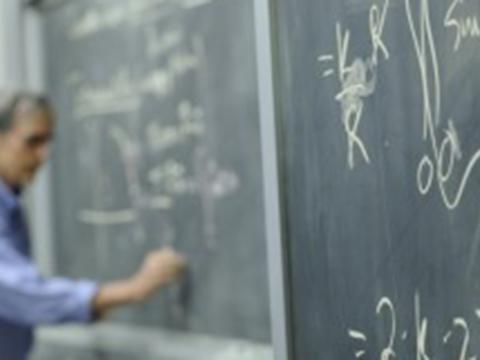
Highlighting faculty professional activities, including conferences, exhibitions, performances, awards, and publications.
-

The professor of mathematics and statistics recently earned funding to create and host a “Careers in Biostatistics” event, featuring professionals and graduate students from the field to introduce the discipline to Haverford’s growing body of statisticians.
-
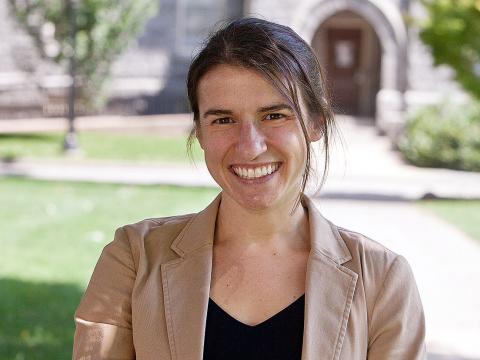
The assistant professor of chemistry is one of only two dozen early career academic scientists to receive this year's honor, which comes with a $100,000 award.
-

This course surveys electrochemical concepts relevant to real-world technologies—in particular those that advance renewable energy—through a combination of mini-lectures to introduce the topics and student-led discussions on current research in the field.
-

This history seminar uses primary-source readings, historical scholarship, and theoretical texts to explore the “self talk” of the Enlightenment period and to explore parallels to our own social-media age.
-

This course explores the evolution of the jihadi movement, focusing on its ideological development since the 1980s.